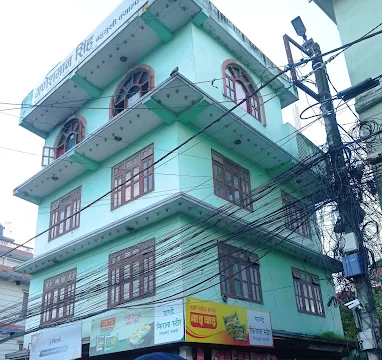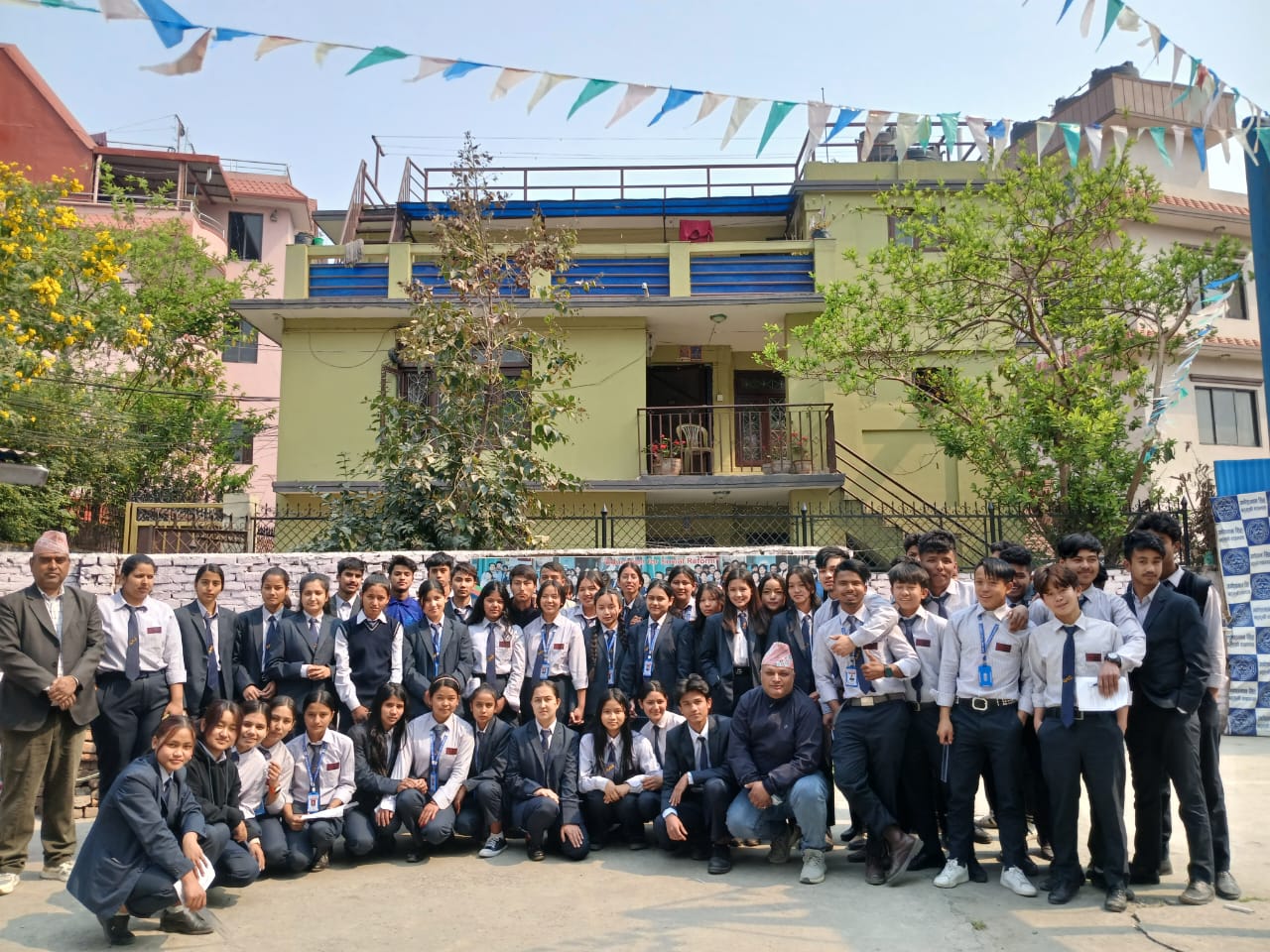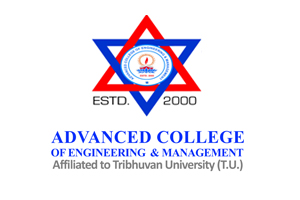Overview
Ganeshman Singh Multiple Campus (GMS), Kalanki, Kathmandu, offers higher secondary and university-level study under Tribhuvan University (TU) and the National Examination Board (NEB). The campus serves local and national learners with undergraduate, postgraduate, and Ten Plus Two programs in Management, Humanities, Education, Social Work, Computer Applications, and related fields.
GMS Multiple Campus in Kalanki provides accessible higher education linked to Nepal’s mainstream frameworks—TU for degree programs and NEB for Ten Plus Two. Within the first academic year after admission, many students look for clear guidance on entry criteria, credit structure, assessment, and practical exposure.
Quick Highlights
-
Location: Kalanki, Kathmandu, Nepal
-
Affiliations: Tribhuvan University (degree programs); National Examination Board (Ten Plus Two)
-
Academic Levels: Ten Plus Two (+2); Bachelor’s; Master’s
-
Key Programs: BBS, BA, B.Ed., BSW, BCA, M.Ed.; +2 (Management, Humanities, Education, Hotel Management)
-
Learning Approach: Classroom teaching with tutorials, lab/practicum work (where relevant), field visits, assignments, and term/board evaluations
-
Library & IT: Course-aligned print resources, reading areas, and internet access; computer labs for ICT-intensive courses
-
Student Support: Counseling, advisement, ECA/CCA opportunities, scholarship guidance
-
Assessment: Internal assessment as per faculty rules; final exams under TU/NEB

Academic Programs Offered
Bachelor’s Programs (Tribhuvan University)
Bachelor of Business Studies (BBS)
-
Duration: 4 years; semester/year-wise as per TU framework.
-
Entry: Completion of Grade 12/+2 or equivalent with required minimum aggregate; program-specific criteria/entrance may apply.
-
Curriculum focus: Accounting, finance, economics, business law, organizational behavior, marketing, operations, entrepreneurship, business communication, and research/report skills.
-
Learning methods: Lectures, problem-solving classes, project work, presentations, case discussion, and exams.
-
Graduate pathways: Entry-level roles in accounting, administration, finance, sales, banking, and public/private sector support functions; eligibility for further study such as MBS, MBA (subject to requirements).
Bachelor of Arts (BA)
-
Duration: 4 years.
-
Entry: Grade 12/+2 or equivalent meeting TU standards.
-
Curriculum focus: English/Nepali, sociology, psychology, economics, history, population studies, and social science research basics (subject choices vary by campus capacity).
-
Learning methods: Textual analysis, term papers, tutorials, and board examinations.
-
Graduate pathways: Writing, research assistance, community outreach, junior roles in NGOs/INGOs, local government support, and media/content roles depending on electives.
Bachelor of Education (B.Ed.)
-
Duration: 4 years.
-
Entry: Grade 12/+2 or equivalent as per TU policy; subject combinations follow faculty rules.
-
Curriculum focus: Educational foundations, subject pedagogy (e.g., English, Nepali, Population, Health), classroom assessment, teaching practice, and lesson planning.
-
Learning methods: Micro-teaching, school observation, practice teaching, records/portfolios, and final exams.
-
Graduate pathways: School teaching (as per national standards), education support roles, and eligibility for M.Ed.
Bachelor of Social Work (BSW)
-
Duration: 4 years.
-
Entry: Grade 12/+2 or equivalent meeting TU norms; interview/statement may apply.
-
Curriculum focus: Introduction to social work, human growth and behavior, social policy, community organization, research, field work, and report writing.
-
Learning methods: Classroom theory with mandatory field placement, supervision meetings, reflection logs, and presentations.
-
Graduate pathways: Entry-level social services, NGOs, community development, child/youth/women support projects, and baseline monitoring roles.
Bachelor of Computer Application (BCA)
-
Duration: 4 years, semester-based under TU.
-
Entry: Grade 12/+2 or equivalent with math/ICT background as per TU rules; entrance test as per faculty guideline.
-
Curriculum focus: Programming (C, Java/Python per TU syllabus), data structures, database systems, web technologies, software engineering concepts, operating systems, networking, and project work.
-
Learning methods: Lab-based coding, assignments, mini-projects, demos, and semester exams.
-
Graduate pathways: Junior developer, QA/testing, IT support, database assistant, web/app development, and further study in CS/IT.
Master’s Program (Tribhuvan University)
Master of Education (M.Ed.)
-
Duration: Typically 2 years (semester-based).
-
Entry: Bachelor’s degree in education or as per faculty prerequisites.
-
Curriculum focus: Educational leadership, curriculum and instruction, assessment, research methods, and specialization courses.
-
Learning methods: Seminars, research proposals, academic writing, practicum where applicable, and final examinations.
-
Graduate pathways: School/college leadership roles (as per regulations), curriculum support, research/assessment units, training, and policy support roles.
Ten Plus Two Programs (NEB)
+2 Management
-
Duration: 2 years (Grade 11–12).
-
Entry: SEE or equivalent; admission criteria per NEB and campus policy.
-
Subjects: Accounting, economics, business studies, English, Nepali, optional math/IT (subject basket varies).
-
Progression: Bachelor’s degrees in management, commerce, IT, and social sciences.
+2 Humanities
-
Duration: 2 years.
-
Entry: SEE or equivalent.
-
Subjects: English/Nepali, sociology, population studies, psychology, history, and optional subjects per availability.
-
Progression: BA, BSW, B.Ed., media studies, and allied fields.
+2 Education
-
Duration: 2 years.
-
Entry: SEE or equivalent.
-
Subjects: Education foundation subjects with English/Nepali and social science options as offered.
-
Progression: B.Ed. and other teacher education tracks.
+2 Hotel Management
-
Duration: 2 years.
-
Entry: SEE or equivalent.
-
Subjects: Hotel management fundamentals, food production/service basics, hospitality communication, with English/Nepali and elective support.
-
Progression: Bachelor’s in hospitality/tourism or management-oriented degrees.
Admission Process
General Flow
-
Form Collection: Obtain the application form from the campus office or official online channel (if available).
-
Submission: Attach academic transcripts, character certificate, recent photographs, and copy of citizenship or equivalent ID.
-
Screening/Entrance: Some programs may require entrance tests or interviews (e.g., BCA entrance as per TU).
-
Merit List & Counseling: Selection follows program rules and seat availability. Counseling clarifies subject combinations and class timing.
-
Enrollment: Pay fees within the stated deadline and complete registration with necessary documents.
-
Orientation: Attend academic briefing on attendance rules, internal assessment, and exam schedules.
Key Notes for Applicants
-
Minimum Requirements: Follow TU/NEB program-wise thresholds for aggregates and subjects.
-
Deadlines: Intake periods often align with TU/NEB calendars; watch official notices.
-
Credit Transfer/Change of Faculty: Possible only within university rules and campus capacity.
Teaching Faculty and Learning Methodology
-
Faculty Profile: Subject graduates and postgraduates with classroom experience; visiting resource persons may conduct workshops or short modules.
-
Class Structure: Theory classes supported by tutorials; lab-based learning in ICT courses; practicum and field placements in Education and Social Work.
-
Assessment: Internal tests, assignments, presentations, attendance requirements, and final exams under TU/NEB.
-
Academic Support: Question-answer sessions, remedial help for core subjects, and library orientation for research assignments.
Infrastructure and Learning Facilities
-
Library & Reading: Course-aligned collections, reference materials, and quiet reading spaces.
-
Computer Labs: Networked systems for BCA and ICT coursework; internet access for coding practice, database work, and research.
-
Classrooms: Fixed seating or flexible layouts depending on course; audio-visual aids where available.
-
Science/Skill Rooms: Practical spaces aligned with syllabus needs (e.g., hospitality practice for Hotel Management).
-
Connectivity: Campus internet/Wi-Fi in designated zones for academic use.
-
Health & Safety: Basic first aid, emergency contacts, and campus rules on discipline and property care.
-
Cafeteria & Common Areas: Meal and break spaces; student interaction zones.
-
Examination Facilities: Separate seating, invigilation as per board/university rules, and result support after publication.
-
Accessibility: Proximity to Kalanki transport nodes helps day scholars; check local routes for daily commute planning.
Student Life and Campus Experience
-
Peer Learning: Group study, peer tutoring, and student-led review sessions before exams.
-
Mentoring: Teacher advisement for subject planning, improvement strategies, and exam preparation.
-
Counseling: Academic and personal support with referrals when needed.
-
Community Links: Engagement with local institutions for field work, outreach tasks, and surveys.

Extracurricular Activities (ECA)
-
Sports: Indoor and outdoor games depending on space and season; inter-class events can be organized by the campus.
-
Arts & Culture: Literary meets, debate, poetry, and cultural days aligned with the academic calendar.
-
Clubs & Volunteering: Subject clubs, social service groups, and environment awareness teams provide practical exposure and leadership opportunities.
Scholarships and Financial Support
-
Merit-based Aid: Fee concessions for high achievers following campus criteria and seat limits.
-
Need-based Support: Limited assistance for students from low-income backgrounds upon verification.
-
Government/External Schemes: Students can apply for national or provincial scholarships when announced; the campus may issue supporting letters as per rules.
-
Continuity Conditions: Many aids require steady attendance and satisfactory internal/external results.
Achievements and Institutional Milestones
-
Expansion from bachelor’s offerings to include Ten Plus Two and a master’s program in education.
-
Regular academic calendars aligned with TU/NEB schedules and evaluation systems.
-
Ongoing upgrades of reading and ICT resources to match syllabus needs.
-
Alumni presence across public, private, and social sectors (individual profiles vary).
-
Participation in seminars, orientations, and awareness programs to build academic habits and research interest.
Why Choose Ganeshman Singh Multiple Campus?
-
Affiliation Framework: TU and NEB structure supports recognition for further study and employment where applicable.
-
Program Range: Options at +2, bachelor’s, and master’s levels across management, humanities, education, social work, and computing.
-
Location Advantage: Kalanki access benefits commuters from multiple parts of the city and nearby areas.
-
Learning Support: Library use, lab exposure, field work, counseling, and advisement practices that help day-to-day study.
-
Value Orientation: Fee structures intended to remain accessible, with scholarship guidance for eligible students.
-
Community Linkages: Social work, education practice, and local outreach build applied understanding of coursework.
Conclusion
GMS Multiple Campus offers a structured path from Ten Plus Two to bachelor’s and postgraduate study in key disciplines relevant to Nepal’s education and service sectors. The mix of classroom learning, practical components, and internal plus board evaluations helps students plan study habits across an academic year.
Applicants are encouraged to review official announcements for entrance dates, seat availability, and subject combinations before final submission.
Frequently Asked Questions (FAQ)
Q1. Which affiliations does the campus follow?
The campus runs bachelor’s and master’s programs under Tribhuvan University and Ten Plus Two under the National Examination Board.
Q2. What programs are currently available?
Bachelor’s: BBS, BA, B.Ed., BSW, BCA; Master’s: M.Ed.; Ten Plus Two: Management, Humanities, Education, and Hotel Management (subject baskets depend on campus capacity).
Q3. Are there entrance exams?
Some programs—such as BCA—follow TU entrance requirements. Check the latest notice for dates, fees, and admit card instructions.
Q4. How are classes and exams scheduled?
Classes follow the academic calendar with internal tests/assignments. Final examinations are conducted by TU/NEB as per their schedules.
Q5. Does the campus provide scholarships?
Merit-based and need-based supports may be available within campus policy and seat limits. External schemes can be applied for when announced by government bodies.
Q6. Can I switch subjects after enrollment?
Changes depend on faculty rules, seat availability, and time of request. Early consultation with the administration is recommended.
Q7. Is there hostel accommodation?
Hostel availability varies by year and capacity. Contact the office for current status or nearby accommodation guidance.
Q8. What is the usual intake period?
Intakes align with TU/NEB calendars. Applicants should follow official notices for each program and session.
Q9. Are credit transfers possible?
Transfers follow TU regulations and campus capacity. Students must submit transcripts and course outlines for evaluation.
Q10. How can international or out-of-valley applicants apply?
They should prepare notarized academic documents (or board-verified equivalents), meet entry criteria, and follow stated deadlines. The campus can advise on document formats accepted by TU/NEB.
Contact Ganeshman Singh Multiple Campus's administrative office for detailed information on the course, admissions, location, fees, scholarships, facilities, counseling, or eligibility.
Contact Details
Ganeshman Singh Multiple Campus
Email Address: gmscampus@gmail.com
Phone Number: +977-1-5234240, +977-1-5234937
Location: Near Kalanki Temple, Kalanki, Kathmandu



















You need to login to comment.